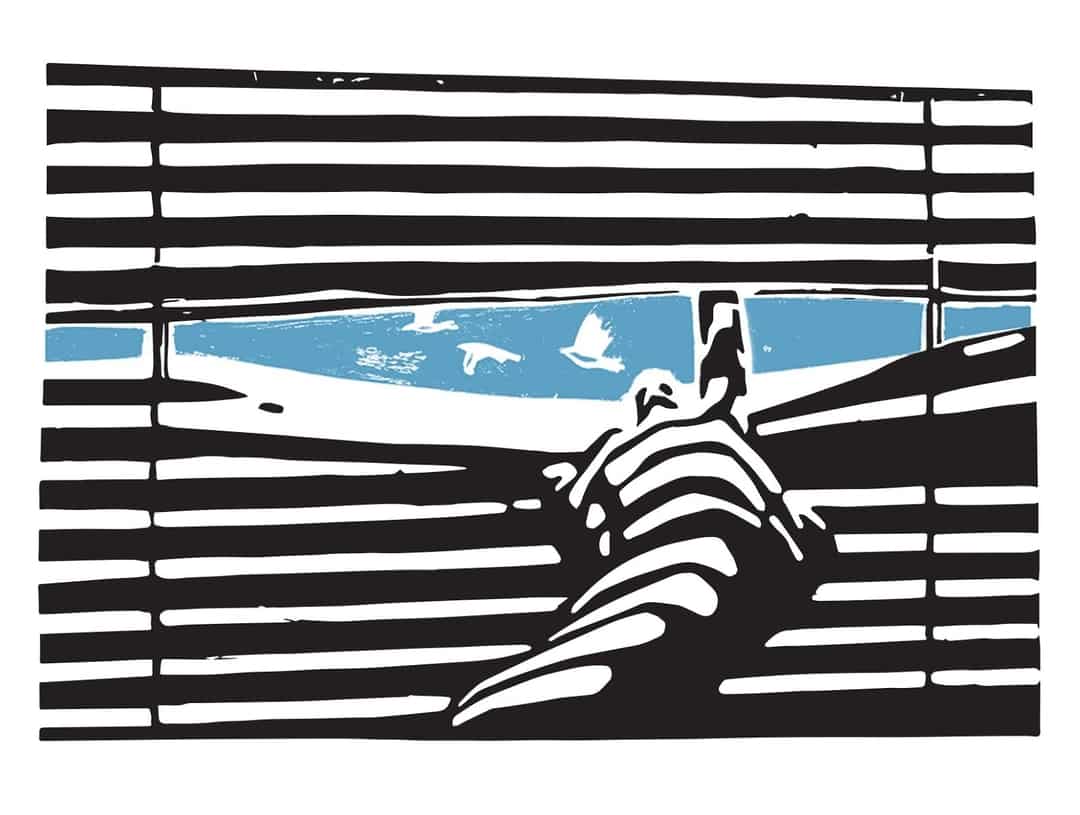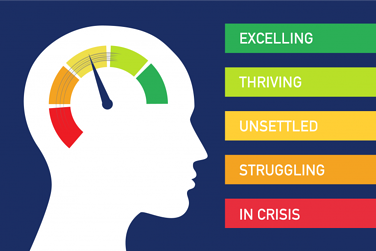
This week is Mental Health Awareness Week in the UK, and as SLAMcore’s mental health ambassador it seems like as good a time as any to share some of my thoughts and experience around mental health, particularly amidst the global Covid-19 pandemic.
I’ve struggled with mental health issues from a very early age, but was only officially diagnosed with depression and generalised anxiety disorder (GAD) in 2014. Since then I’ve been on a rollercoaster of learning how to improve, monitor and nurture my mental health. I’ve learned that there are endless different ways to treat mental health conditions, and that some of them work for me and some don’t. I’ve also learned that there are many different types of mental disorders, each with their own spectrum of severity, and I’ve developed a keen interest in learning about how other people are affected, and how other people manage their conditions. But the most important thing I’ve learned about treating my mental health is that self-management is critical.
What does ‘mental health’ actually mean?
Everyone has mental health, just as everyone has physical health. The World Health Organisation (WHO) states in its constitution:
“Health is a state of complete physical, mental and social well-being and not merely the absence of disease or infirmity.”
Specifically, the WHO describes mental health as “an integral and essential component of health; more than just the absence of mental disorders or disabilities”.
We manage our physical health every day, without even thinking about it. We eat, drink, sleep, breathe oxygen, practice good basic hygiene (bathing, washing our hands etc), and hopefully, exercise or at least mobilise our body in some way.
But when it comes to managing our day-to-day mental health, it doesn’t always come so naturally.
Even at a point of crisis or severity, physical illnesses, like a broken arm, are dealt with without hesitation, whereas mental crises, like a panic attack or breakdown, can easily go untreated or undiagnosed. Obviously I am not a medical professional, but I know this from my own personal experience. Asking for help in a mental crisis is not as easy as picking up the phone and calling an ambulance to take you to hospital. Whether you end up getting professional help or not, if it was for a physical crisis, you’re highly likely to be more cautious in future, or even avoid altogether, doing the thing that led to the broken arm in the first place, especially whilst you are healing. After a mental crisis, the healing time can take much, much longer, but is also much less visible, so easier to forget about and go back to ignoring it, until it reaches another crisis point, and the cycle repeats.
I’m pleased to say that after going through this ugly cycle myself a few times, treatment trial and error, and my learnings over the past few years, I eventually reached, and maintained, a ‘good’ state of mental health. It’s important to point out however, that mental health is a continuum, and can fluctuate periodically. The key is managing it so that it stabilises at the healthy end of the spectrum, and minimises relapses into crisis.

Mental health and Covid-19
Mental disorders range far beyond the well-known depression and anxiety, and can include things like prolonged/severe stress, sleep problems, phobias, addiction, loneliness, and even anger.
‘Rapid social change’ is identified by WHO as a common cause of poor mental health, so there’s an obvious link between the current pandemic situation and deteriorating mental health, not just from the fear of contracting or passing on the virus.
As I write this, it’s been exactly two months since I last had any physical contact with another human being – a hug with a dear friend as we parted ways on our journey home from a swing dance weekend festival. As an introvert, and someone who has battled with mental disorders most of my life, living alone works best for me. But the social interactions and physical exercise that my swing dance hobby provides, have been absolutely critical to managing my mental health over the last 5 years. Combined with the fact that I’m an expat, and my entire family is on the other side of the world, it’s fair to say that these past two months have been one of the loneliest times of my life. Although I consider myself a little old fashioned, I’m more grateful for technology today than ever before. We may be physically distant, but thanks to technology, we are socially closer than ever.
Mental health in the workplace
As Head of Operations at a young company, I’m very fortunate to be in a position where I can help design and build the culture of SLAMcore. While ‘financial’ benefits and perks might be rare at early stage start-ups, cultural ones certainly don’t have to be, and in my honest opinion these are often much more valuable in the long run. At SLAMcore we’re aiming to cultivate a workplace culture with good mental health at its core, by offering flexible working arrangements, high levels of trust, and encouraging the use of ‘sick’ days for both mental and physical health.
As a company, we’ve been working from home for two months now, and while our productivity and enthusiasm towards our mission has never faltered, we are always looking for innovative and fun ways to improve our social interactions, through virtual drinks, coffees, games, and even in our all-hands meetings. I can’t wait to get back to the office and catch up with everyone over a beer, but for now I look forward to joining my colleagues for a virtual pub quiz next week!
